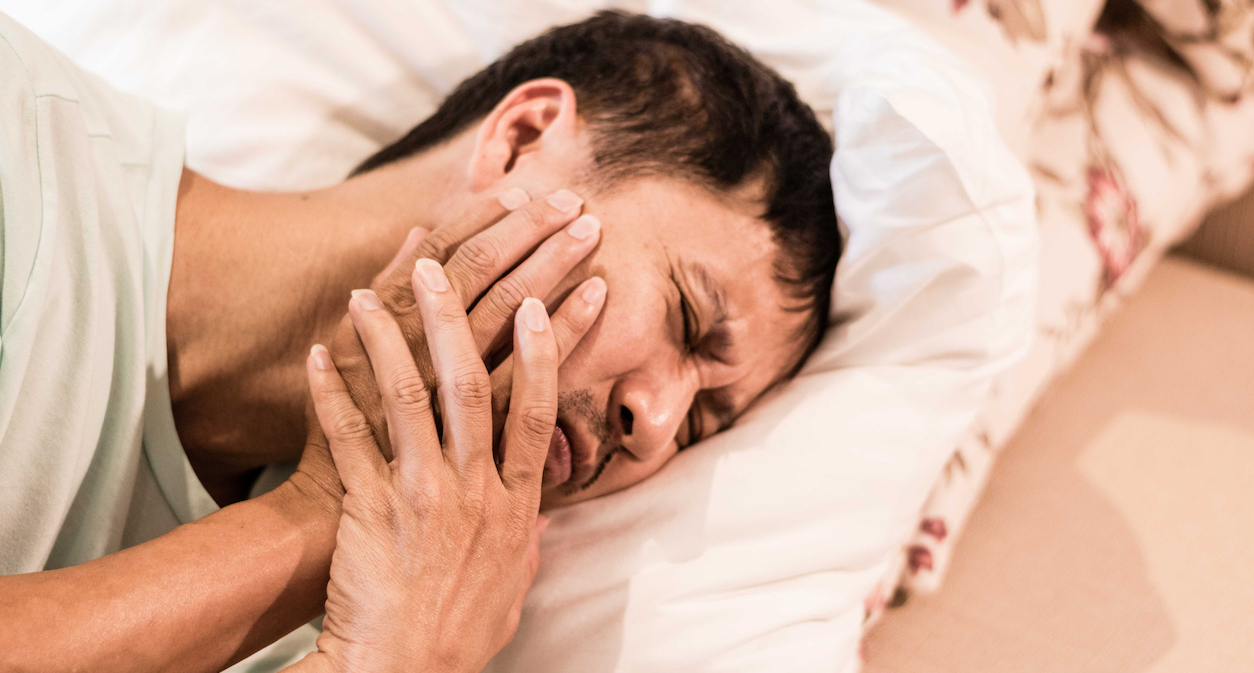TMJ Disorder – How a Prosthodontist can Provide Relief?
If you’ve suffered from Temporomandibular Joint Disorder (TMJ), you’ll know how disruptive it can be to daily life. Some sufferers can spend months trying to find a solution with their general dentist or GP, but a visit to a specialist prosthodontist can provide a much faster solution to the problem.
What is Temporomandibular Joint Disorder (TMJ)?
TMJ Disorder affects the jaw muscles and nerves in the joint that connects the jawbone and skull. The disorder can be caused by genetics, an injury to the jaw or arthritis, a combination of factors or be unknown. TMJ disorders are usually temporary and can be relieved with non-surgical treatments but in a small number of cases surgery is the best form of treatment.
Symptoms and Causes
There are several symptoms of TMJ Disorder. A sufferer may have one or more of the following:
- Pain or a sore jaw
- Pain in the temporomandibular joint/s
- Pain while chewing
- A clicking sound while chewing
- Difficulty opening and closing the mouth
- Aching or pain in the face
For many sufferers, the cause of their TMJ Disorder is not known. Women aged 18-44 years have an increased risk of TMJ Disorder. Poor posture and stress are also be contributing factors to TMJ Disorder.
For others, TMJ Disorder is a result of:
- Chronic inflammatory arthritis
- An injury to the temporomandibular joint
- Erosion of the disk
- Bruxism (teeth grinding)
To diagnose TMJ Disorder a dentist or doctor may:
- Check the range of motion of the jaw
- Press different areas of the jaw to check for pain
- Listen for any clicking sounds when the jaw is opened and closed
- Feel the jaw as it opens and closes
- Use an x-ray, CT scan and /or MRI
Treatments
While there aren’t any cures for TMJ Disorder, there are treatments to reduce the pain and severity. Some sufferers find the disorder resolves itself without any treatment but if it continues, some form of treatment is needed to provide relief.
Common forms of treatment for TMJ Disorder include:
- Pain relief medication – either over the counter, or for more severe pain, a doctor may prescribe stronger medication to assist for the short-term
- Anti-inflammatory medication – any inflammation around the TMJ may be relieved with anti-inflammatory or muscle relaxant medication
- Night mouth guard/splint – pain in the jaw can be attributed to bruxism or clenching of the jaw so a night guard can protect teeth from grinding against each other
- Physio – stretching and strengthening the jaw muscles can improve TMJ Disorder
- Corticosteroid injections – an injection into the jaw can provide pain relief and assist with the chewing action
- Change of diet – while you don’t want to change your diet forever, a soft food diet can provide some pain relief in the short-term
- Surgery – in cases of severe pain or limited jaw movement, the best option may be surgery for repairing or replacing the joint.
Alternative therapies have also been used for treating TMJ Disorder successfully in some patients:
- Relaxation therapy – the jaws and teeth often bear the brunt of stress so any technique that reduces stress can help the TMJ
- Acupuncture – when TMJ pain in chronic, some patients have found relief in acupuncture
Prosthodontist Experience in TMJ Disorders
A prosthodontist regularly sees patients with TMJ Disorder so they know the questions to ask about the symptoms and the patient’s lifestyle. The answers can help with a diagnosis and the best form of treatment. They may see a patient who has developed TMJ Disorder for the first time so they’re looking for short-term relief and possible treatment to ensure a good long-term outcome.
But for many patients by the time they see a prosthodontist, they may have suffered from TMJ Disorder for some time and they haven’t found adequate relief with their dentist or GP’s treatment options. A prosthodontist will ask about the history of their condition and the treatments they’ve already tried. Often the next stage of treatment type is needed such as an injection, or for those with severe cases, surgery on the joint.
If you feel your TMJ Disorder hasn’t been resolved after treatment elsewhere or you would like a specialist second opinion, contact us online or call 9321 1632.

